It isn’t unusual for me to learn additional things about a particular gun from various folks after I write a post, which sometimes calls for an addendum to my original post or article. Well, after seeing Monday’s video on the M1895 Nagant revolver, a reader named Robert was kind enough to send me a collection of original Russian documentation for the weapon. They are all in Russian – which I don’t read – so I may get a few of these details wrong. All the files are available for download as PDFs.
First up, a 1901 armorer’s manual (14 pages, truncated):
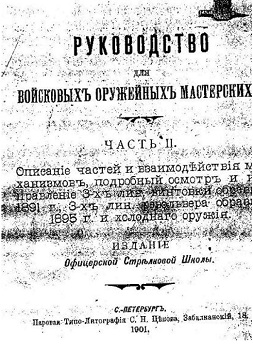
Note that the revolver is often referred to as a “3-line revolver” – the “line” is an archaic Russian unit of measurement equal to one tenth of an inch (or 2.54mm). You will also see the Mosin-Nagant rifle described as a 3-line rifle; this is equivalent to the US designation of “Rifle, Cal. 30”.
Anyway, next up is a document entitled “Instructions for Receiving and Making 3-Line Revolvers M1895” (typed, no pictures, and dated 1927):
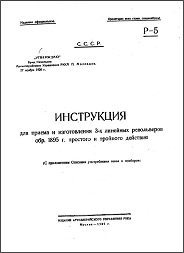
Following that, a 67-page section of a technical repair manual for the M1895 (and the TT33 automatic pistol), clipped out from a larger document. I don’t have a date for this one, but it must be post-1930, since it includes information on the Tokarev pistol:
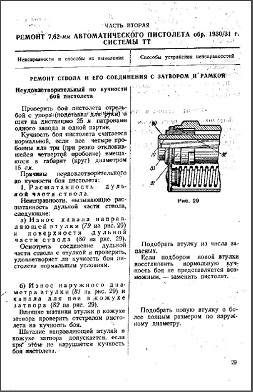
Finally, we have a trio of operators’ manuals covering both the Nagant revolver and the Tokarev automatic. The 1940 and 1950 editions are truncated and do not include all the Tokarev information (and the 1950 has a couple torn pages), and the 1954 edition is complete.
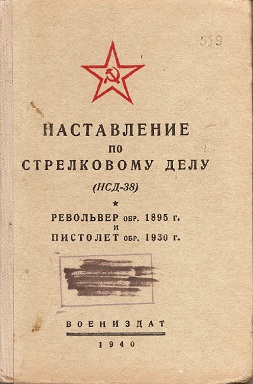
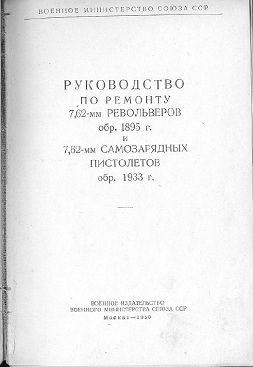
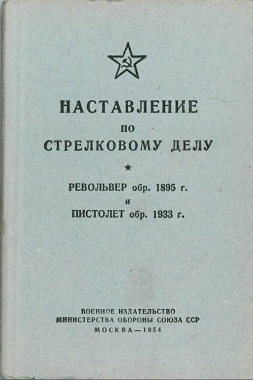

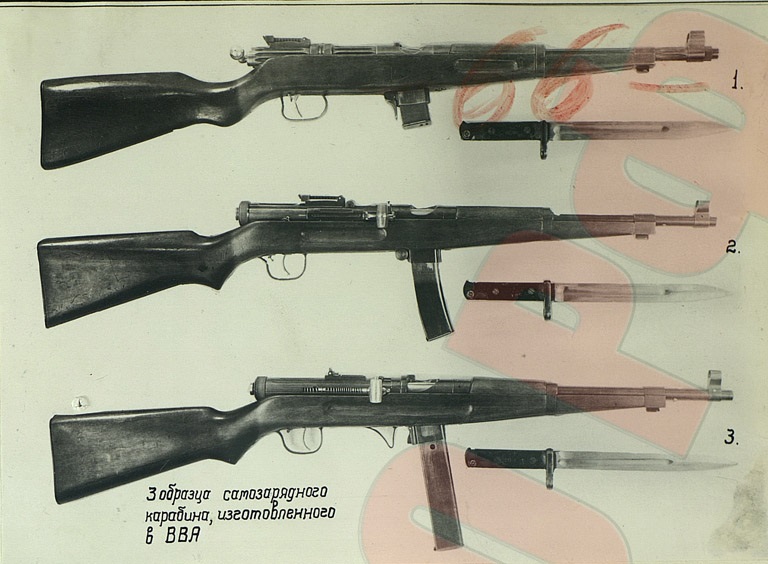
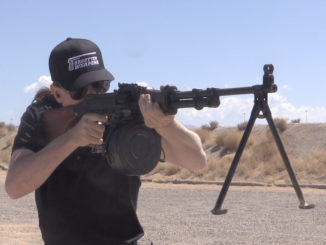

I have been told that the 1895 is the only true revolver capable of having a silencer (suppressor) attached due to it’s cylinder to breach face lock-up method. I saw back in the 60’s at foreign weapons course a picture of a Russian with a 1895 and an attachment on the muzzle, picture caption said “1895 with Silencer” Any info on this?
Well, the Russians did have a suppressor made for the Nagant, although I think it had fairly limited use. It is true that suppressing any non-gas seal revolver is pointless because of the cylinder gap, but the Russian M1895 Nagant isn’t the only gas seal revolver ever made (although it is by far the most common). The other method out there to make a quiet revolver is the use of piston-type cartridges, where the gas remains sealed inside an expanded cartridge case after firing.
http://sadefensejournal.com/wp/?p=1812
A very good/close friend of mine has several of the SP cartridges, There are I believe 5 different versions. I have been trying; without ANY success, to pry one from his tight fisted hands! LoL, for MY collection! No luck! Thanks for the attachment; great section view. Did you know the rounds have been found/turned up in South America.//Mike//
Heh – by interesting coincidence, I just got an article from Max Popenker on Soviet silent pistols, which will be going up on the site next week. 🙂
A german SEK unit(~SWAT)uses a suppressed revolver. The whole cylinder is housed to seal the gas in.
http://www.thefirearmblog.com/blog/2009/03/03/sw-625-fully-suppressed-revolver/
Fidel,
completely OT, I located the article about the delay blowback pistol I was confusing with the Korphila in the FAMAS comments. It was a one off prototype in .45 and it wasn’t even roller delay…
https://www.forgottenweapons.com/french-famas-f1/#comment-84465
Keith
Right.. I have used a gas seal type ctg in Cal .30 for Model 70 Winchester and in .44 in a special built revolver for tunnel work amongst other things;in the 60’s. And I know the Russians have done extensive work on this type cartridge in several calibers. I was wondering if by chance you had anything on the Russian use with the 1895 and the use of them by the Chinese years ago.
‘There is not too much
information about a
silenced Nagant revolver
available, but they were
really existing! No
drawings (one from a
German booklet, another
in Russian source) exposes
the bayonet mount
construction of silencer.
Jacket’s outer diameter
was somewhat bigger
than o.d. of revolver
cylinder. There were nine
straight rubber “wipes” or
baffles inside the jacket.
Silencing effect of them
degraded presumably
after just a few shots due
to the bullet shape of
Nagant revolver cartridge:
The very first flat-nosed
bullet could drill a
permanent hole through
all the wipes.
Thickness of them was ca.
8 millimeters. They had a
cross-like slices on their
center. Because of
thickness of the silencer
jacket and concentric
mounting of it, the
silencer covered iron
sights of Nagant entirely.
Use of silenced Nagant
was therefore a short-
range job: Maximum
effective range was about
four arshins (2.85 meters)
when the silenced Nagant
was used by an average
Red Partizan who was
never practised
“instinctive shooting”
without use of sights at
all.
It seems to be impossible
to get reliable information
about Nagant revolver
silencer (photographs or
detailed drawings,
dimensions and weight). It
was presumably never
mass-produced because
of it’s impractical
construction and large
size.’
From guns.connect.fi/gow/QA7.html
Sorry about the messy layout from my dumbphone, have a piccy:
http://4.bp.blogspot.com/-k3oK4s0s3v0/TsbdlV3O56I/AAAAAAAAAyg/c_-y1RtsoGM/s1600/nagant.gif
I can only imagine the engineering cost of this Fidel… Kinda like “lets do it cause we can do it” typical engineer think. During 60-70’s several single shot locked breach from .22 to .45 were developed for suppressed use with reduced loads… at about 1/3 the cost of the “enclosed cylinder” concept. The plain old High Standard HD w/suppressor.. (bit LONG)but w/.22shorts at 0-5 feet very successful. I just wondered if anyone had actual documentation on the 1895 w/suppressor.//Thanks All//Mike//
Yup.
Peters Stahl (remember Joe Peters’ metric 1911 and other ‘improvements’ of JMB’s classic?) went belly-up and the Germans are about to follow.
Fidel… THANK YOU! Yes .. suppressed weapons are not as 90% of the time depicted in the movies. And as you say.. were seldom “mass” produced until very recently. So much of the older documentation has vanished. I have two 7.92×57 Mauser 1943 “green” rds. No one has been able to show me the suppressor or documentation that in FACT was used on a K98. I would believe the Germans also attempted to use suppressors for snipers in WW I, as trench warfare degenerated into a “raid” and a “sniper” war as the massed use of the machine gun sorta put a damper on “across the wire boys” attacks. Thanks again.//Mike//
http://translate.google.com/translate?hl=en&ie=UTF8&prev=_m&sl=auto&tl=en&u=http://www.hermann-historica.de/auktion/hhm57.pl%3Ff%3DNR%26c%3D72411%26t%3Dtemartic_S_D%26db%3Dkat57_s.txt
for the ‘Nahpatrone’ (close range round) made by Finow Patronenwerke.
GREAT.. Thank you very much, and thank your friend for me also! Very very efficient looking, no frills just functional. Thanks again.//Mike//
Fidel, Thomas, Ian and Markus :
I have learned a lot about this particular weapon just following the discussion among the four of you. I’m reasonably sure that other readers have experienced the same. Thanks and hope you’ll never stop sharing!
Re: Nagant silencer
This thread w/photographs is about the Nagant silencer/suppressor, the BraMit device (“brothers Mitin device”). The op’s question is how does it really look like and what are its stats. The consensus reached seems to be that:
a) there is a family of variants of the device, not a single model. In contrast with Mitins’ suppressor for Mosin’s rifle, which is dug up and sold often, suppressors for Nagant exist in numerous versions, both integrated and clip-on.
b) a number of these different “BraMits” are fantasy reconstructions.
http://forum.guns.ru/forummessage/36/379971-3.html
GREAT Pic’s. Now … if only I’d taken RUSSIA instead of auto-shop in high school!